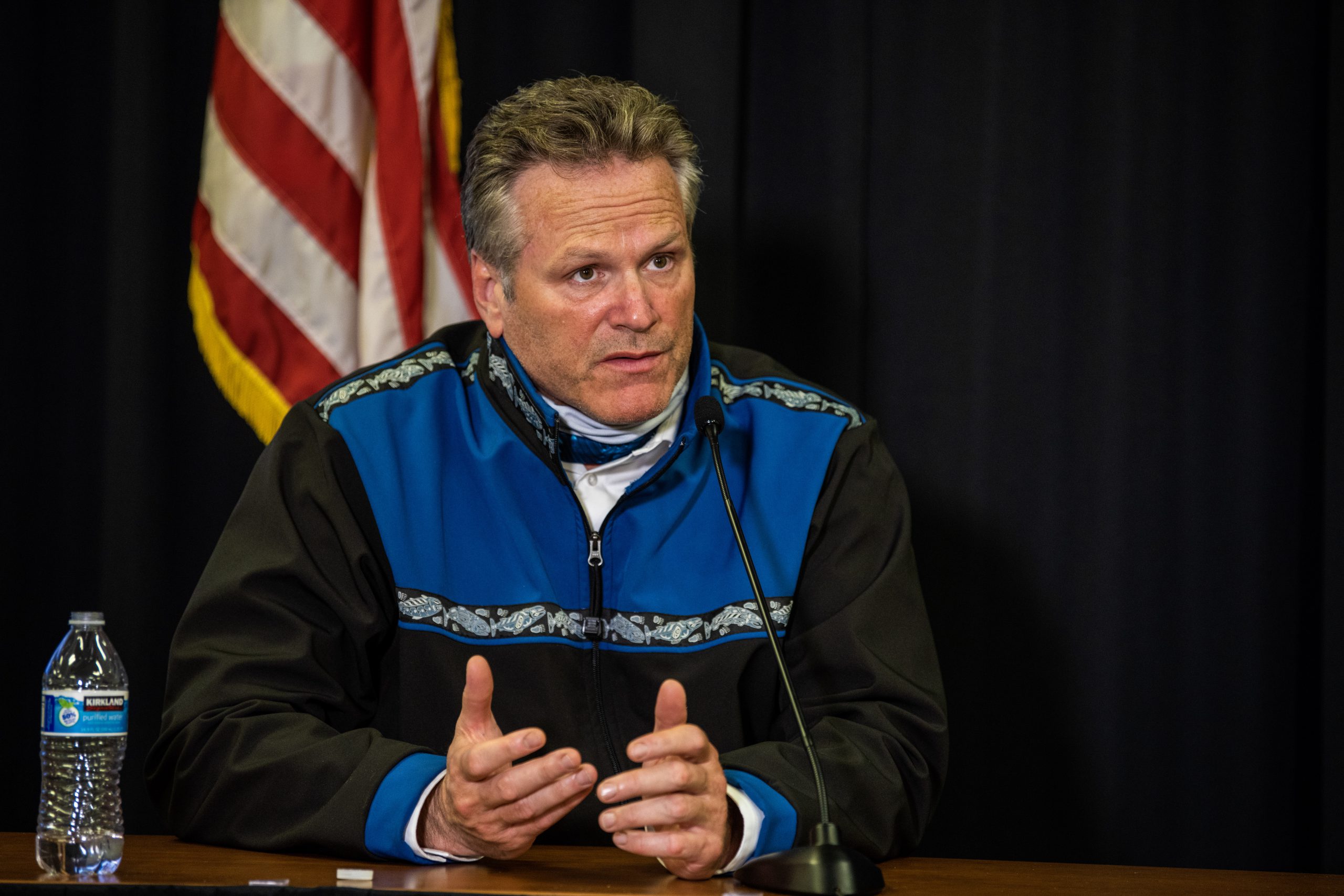Indianz.Com > News > State of Alaska backs Native corporations in COVID-19 dispute
State of Alaska backs Native corporations in COVID-19 dispute
Thursday, November 5, 2020
Indianz.Com
The state of Alaska is siding with Native corporations over tribal governments in a closely-watched COVID-19 case pending before the U.S. Supreme Court.
In a brief filed on Wednesday, the state admits that Alaska Native corporations
are not “sovereign entities”. And unlike Indian nations, the corporate entities lack a “government-to-government relationship” with the United States, the Alaska attorney general’s office acknowledges.
But the state argues that the shortcomings should be overlooked in order for the corporations to be treated as “Indian tribes.” That would allow them to shares of an $8 billion coronavirus relief fund that Congress established to help tribal, state and local governments get through the ongoing public health crisis.
“The state of Alaska has a strong interest in ensuring that all of its Alaska Native citizens receive the critical coronavirus relief funds that Congress intended for them,” the 26-page document reads.
With the brief, the state appears to be addressing a single sentence contained in the D.C. Circuit Court of Appeals ruling in the case. According to the state, Alaska Native corporations (ANCs) provide services to Native citizens that the state cannot.
“State-run programs are already financially strained, and Alaska —- a state which derives much of its revenue from tourism and natural resource production and is thus already acutely impacted by the pandemic — is no different,” the brief reads. “Cutting off funding to the ANCs, which provide services to tens of thousands of Alaska Natives, will create a chasm that the state simply will be unable to fill — especially given the immediacy of the needs presented by the ongoing pandemic.”


D.C. Circuit Court of Appeals Decision
Confederated Tribes of the Chehalis Reservation v. Steven Mnuchin (September 25, 2020)
Related Stories
COVID-19 funding dispute heads to Trump’s Supreme Court (November 3, 2020)Tribes and Native corporations still at odds over disputed COVID-19 funding (October 1, 2020)
Native Sun News Today: Tribal nations win ruling in COVID-19 funding dispute (September 30, 2020)
Appeals court sides with tribes in COVID-19 funding dispute (September 25, 2020)
Spreadsheet: Coronavirus Relief Fund allocations for tribal governments (September 25, 2020)
Coronavirus Relief Fund allocations for tribal governments (September 24, 2020)
Cronkite News: Navajo Nation weighs spending plans for COVID-19 funds (September 21, 2020)
‘All out war’: Republican lawmaker slams National Congress of American Indians (September 18, 2020)
Chuck Hoskin: Cherokee Nation invests CARES Act money in community (September 14, 2020)
Appeals court hears arguments in COVID-19 funding dispute (September 11, 2020)
Search
Filed Under
Tags
More Headlines
Chuck Hoskin: Cherokee Nation benefits from extension of health care credits
Native America Calling: Tribal museums reflect on tumultuous year, chart their next steps
Press Release: National Museum of the American Indian hosts Native art market
AUDIO: Sea Lion Predation in the Pacific Northwest
Native America Calling: Tribal colleges see an uncertain federal funding road ahead
Native America Calling: Short films taking on big stories
Native America Calling: Advocates push back against new obstacles to Missing and Murdered Indigenous Relatives momentum
Native America Calling: For all its promise, AI is a potential threat to culture
NAFOA: 5 Things You Need to Know this Week (November 24, 2025)
Chuck Hoskin: Cherokee Nation invests in rural transportation
Native America Calling: Native candidates make strides in local elections
National Congress of American Indians returns incumbents and welcomes newcomers to leadership
National Congress of American Indians chooses leadership at big convention
‘Not voting is still a vote’: Native turnout drops amid changes in political winds
Native America Calling: Indigenous voices speak up, but have little clout at COP30
More Headlines
Native America Calling: Tribal museums reflect on tumultuous year, chart their next steps
Press Release: National Museum of the American Indian hosts Native art market
AUDIO: Sea Lion Predation in the Pacific Northwest
Native America Calling: Tribal colleges see an uncertain federal funding road ahead
Native America Calling: Short films taking on big stories
Native America Calling: Advocates push back against new obstacles to Missing and Murdered Indigenous Relatives momentum
Native America Calling: For all its promise, AI is a potential threat to culture
NAFOA: 5 Things You Need to Know this Week (November 24, 2025)
Chuck Hoskin: Cherokee Nation invests in rural transportation
Native America Calling: Native candidates make strides in local elections
National Congress of American Indians returns incumbents and welcomes newcomers to leadership
National Congress of American Indians chooses leadership at big convention
‘Not voting is still a vote’: Native turnout drops amid changes in political winds
Native America Calling: Indigenous voices speak up, but have little clout at COP30
More Headlines